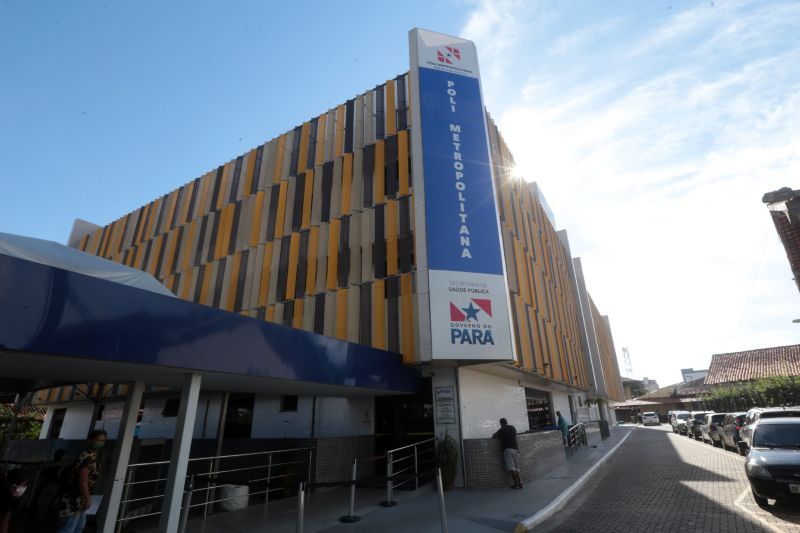Metropolitan Polyclinic of Pará warns about the risks and signs of Burnout Syndrome
Unit advises the population on symptoms, prevention, and the importance of psychological support in the workplace

The Metropolitan Polyclinic of Pará, in Belém, emphasizes the importance of understanding and early identification of the signs of Burnout Syndrome, a disorder directly related to chronic stress in the workplace.
According to the unit's psychologist, Cassiane Rodrigues, although stress is part of everyday life, there are significant differences between common stress and the syndrome. "Common stress is the natural response of the body and mind to demands, changes, or pressures of daily life. It is temporary and tends to cease when the situation that provoked it is resolved," she said.
On the other hand, Burnout Syndrome is understood as a reaction to chronic work-related stress, which involves negative attitudes, behaviors, and emotions of the individual towards their work and the people they interact with. It occurs when the individual reaches their limit due to an inability to adapt to a highly stressful job with a heavy load of tension," explains Cassiane.
The specialist emphasizes that it is essential to be attentive to warning signs, which can manifest both physically and emotionally. "Extreme fatigue that does not improve with rest, frequent mood swings such as irritability and aggressiveness, lack of motivation and loss of interest in work and even leisure, difficulty concentrating, migraines, memory lapses, a constant feeling of incapacity or failure, and physical symptoms such as muscle pain, palpitations, and sleep disturbances are indicators that should not be ignored," she warns.
Vulnerable
Some professional groups are more vulnerable to the syndrome, especially those dealing with high demands and under strong pressure. "Health professionals, educators, public safety personnel, and those working in areas that require high emotional performance or face long hours are more exposed. These groups deal daily with a large volume of tasks, intense responsibility, and often a lack of adequate resources to perform their work," she points out.
Pandemic
The work environment and organizational culture also play a central role in the emergence of Burnout. "Excessive hours, unattainable goals, lack of breaks, absence of recognition, and a poor organizational climate favor the development of a possible condition. A culture of being 'always available' is also extremely harmful," asserts Cassiane.
The psychologist adds that the pandemic has worsened the problem: "The pandemic brought insecurity, increased workload, especially in healthcare, social isolation, and constant fear of illness. Professionals had to adapt to new demands, cope with losses, and often work without adequate structure, which intensified physical and mental exhaustion."
SELF-CRITICISM: Another point addressed by the specialist is excessive self-criticism, common in cases of burnout. "Recognizing that limits exist and that there is no problem in asking for help is fundamental. It is important to replace self-critical thoughts with self-compassion, practice breaks, and understand that resting is also part of the productive process. Psychological support can help reframe these beliefs and reduce self-imposed pressure," she advises.
Upon noticing the first signs of the syndrome, Cassiane recommends that the individual does not delay seeking specialized support. "Recognizing and accepting the signs, seeking psychological assistance as soon as possible, evaluating with a doctor or psychologist the need for temporary leave, and reviewing sleep, nutrition, and leisure habits are essential measures. If possible, it is worthwhile to talk to management or the HR department to adjust demands and deadlines," she advises.
Prevention
For her, prevention is as important as treatment. "Regular breaks during work, realistic organization of the routine, enjoyable physical activities, maintaining an active social support network, and limiting exposure to work demands outside of working hours are simple yet very effective practices to reduce the risk of the syndrome," she reinforces.
SERVICE
The first access to the services of the Metropolitan Polyclinic is made through state regulation. After the appointment, follow-up consultations and exams can be scheduled via WhatsApp Business at (91) 98521-5110, or by email at agendamento.polimetropolitana@issaa.org.br.
To be attended, it is necessary to present an ID, CPF, SUS card, and proof of residence. In the case of children without an ID, the birth certificate and the mother's documents must be presented.









